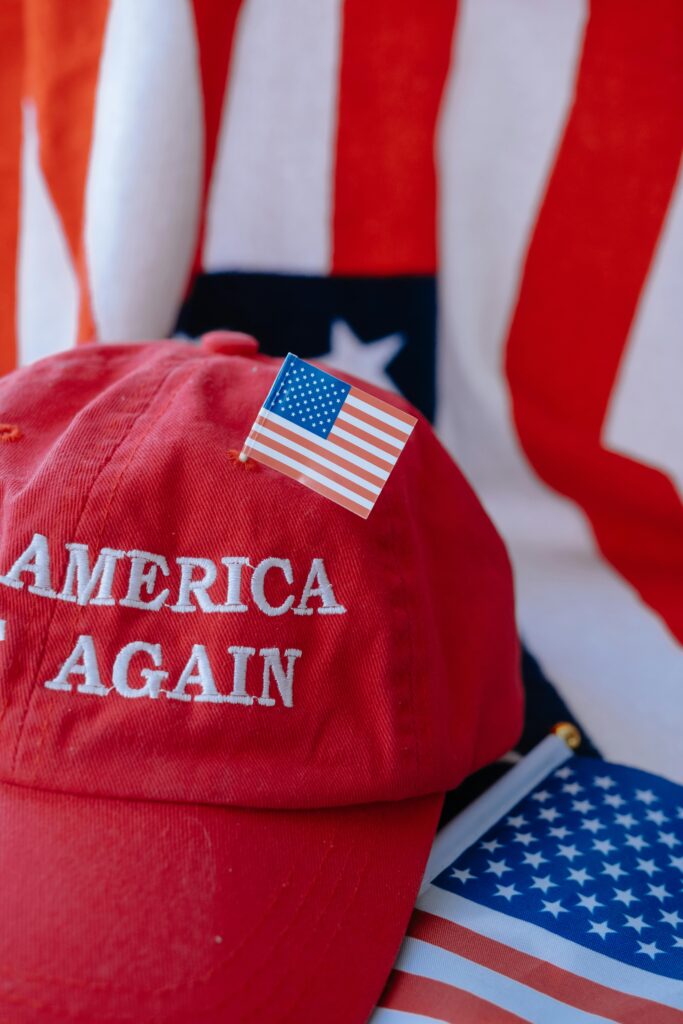- Politics
- Make America Great Again
- By Manohar Patil
"Make America Great Again": More Than Just a Slogan?
The phrase “Make America Great Again” (MAGA) burst into mainstream consciousness during the 2016 US presidential campaign, becoming an iconic rallying cry that resonated deeply with a significant segment of the American populace. Far more than just a political slogan, it encapsulated a yearning for a perceived past era of prosperity, strength, and national pride. While its critics often dismiss it as mere rhetoric, its proponents view it as a guiding principle for policy, reflecting specific economic, social, and geopolitical objectives. Examining whether “MAGA” is solely a slogan or a blueprint requires delving into its multifaceted interpretations and real-world implications.
The Power of Nostalgia and Perceived Decline
At its core, “Make America Great Again” taps into a powerful sense of nostalgia. For many, it evokes an idealized vision of America’s post-World War II industrial boom, where manufacturing jobs were abundant, economic growth was robust, and the nation held undisputed global leadership. This sentiment is often fueled by a feeling of decline, whether due to job losses in traditional industries, perceived challenges to national sovereignty, or a sense of cultural shift. The slogan offers a promise to reverse these trends, appealing to those who feel left behind by globalization and economic change. It’s a simple, yet potent, message that bypasses complex policy details in favor of a clear, emotional appeal.
Economic Nationalism and Trade Policy
When translated into policy, “MAGA” often manifests as economic nationalism. This involves prioritizing domestic industries and jobs, sometimes through protectionist measures like tariffs. The belief is that by re-shoring manufacturing, reducing trade deficits, and renegotiating international agreements, America’s economic vitality can be restored. Critics argue that such policies can lead to higher consumer prices, retaliatory tariffs from other nations, and ultimately harm global trade, while proponents assert they are necessary to correct past imbalances and protect national interests. The debate hinges on whether such measures genuinely lead to long-term prosperity or merely create short-term disruptions.
Immigration and Border Security
Another significant facet of the “MAGA” philosophy revolves around immigration and border security. The sentiment often implies a desire for stricter controls on who enters the country, prioritizing national security and perceived societal cohesion. This has led to policies such as increased border wall construction, stricter enforcement of immigration laws, and limitations on certain types of immigration. For supporters, these actions are vital to maintaining national identity and ensuring public safety. Opponents, however, argue that such policies are often inhumane, economically detrimental, and contrary to America’s historical identity as a nation of immigrants.
Geopolitical Stance and "America First"
In foreign policy, “Make America Great Again” has been interpreted as an “America First” approach, emphasizing national interests above multilateralism and international alliances. This can involve withdrawing from international agreements, challenging established diplomatic norms, and demanding that allies bear a greater share of defense burdens. The aim is to project strength and ensure that US interests are paramount in global affairs. Critics contend that this approach isolates the US, undermines global cooperation, and creates instability, while supporters argue it is a necessary recalibration of US foreign policy, shedding burdensome commitments and reasserting national sovereignty.
In conclusion, “Make America Great Again” is far more than just a catchy phrase. It’s a multifaceted ideology that, while undeniably powerful as a slogan, has also served as a framework for distinct policy decisions in economics, immigration, and foreign affairs. Whether these policies genuinely lead to a “greater America” remains a subject of ongoing debate, but its profound impact on political discourse and global dynamics is undeniable.
Share this Article
WhatsApp
LinkedIn
Telegram
Email
Get Daily Updates to Your Inbox
Subscribe to News Letter
Advertisement


